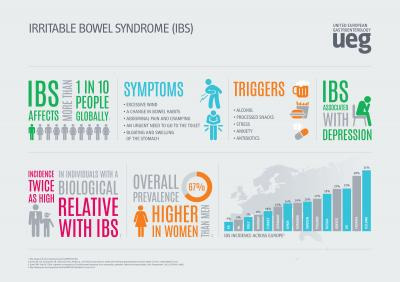Text
Finding Your Best IBS Treatment Plan
Irritable bowel syndrome (IBS) is a common digestive disorder estimated to affect 10-15% of the entire population. Symptoms like cramping, abdominal pain, bloating, constipation and diarrhea can range from mild to completely debilitating.
While no medical cure exists for IBS, the good news is that many effective IBS treatment options are available to significantly ease symptoms. It simply requires working with your doctor to discover the best personalized treatment plan.

Getting Properly Diagnosed
Since IBS is what’s known as a diagnosis of exclusion, the first step is to rule out the possibility of other inflammatory bowel diseases like Crohn’s or Celiac with specific testing. These may include:
Stool tests check for underlying infections or other gut issues
Blood tests look for markers of inflammation indicating disease
Colonoscopy visually examines the large intestine
Food sensitivity testing reveals if certain foods worsen symptoms
Once other conditions are ruled out, your doctor will make an official IBS diagnosis, the details of which will guide your treatment plan.
IBS Treatment Plans Depend on Type
There are four types of IBS, classified by what digestive symptoms are most prominent:
IBS with Constipation (IBS-C): Hard, infrequent stools
IBS with Diarrhea (IBS-D): Frequent loose, watery stools.
IBS with Mixed Bowel Habits (IBS-M): Alternating constipation and diarrhea
IBS Unspecified: Insufficient abnormality of stool consistency
Identifying your IBS type allows your doctor to select suitable therapies.
Lifestyle Treatments for IBS Relief
Certain at-home care strategies may significantly control IBS flare-ups including:
IBS Diet - Limiting intake of high FODMAP foods like dairy, beans, wheat, onions, cabbage, and artificial sweeteners can ease stool issues in 75% of IBS patients.
Stress Reduction - Stress dramatically exacerbates IBS problems, so relaxation techniques like meditation, yoga, massage are key.
More Exercise – Moderate activity at least 30 minutes daily calms the nervous system tied to digestive function.
Probiotics - These healthy gut bacteria in supplement form have been shown in studies to reduce bloating and pain.
Peppermint Oil - Shown to reduce spasms and cramping pain. Use enteric-coated capsules.
Prescription IBS Medications
If lifestyle adjustments aren’t providing enough relief, many traditional and newer medications can be very effective, including:
Antispasmodics – Helps relax intestinal muscles to reduce painful cramping and spasms
Antidiarrheals – Slows motility and stool frequency for IBS-D
Laxatives – Helps alleviate constipation with IBS-C
Low-dose Antidepressants – Alters pain signaling pathways between the brain and digestive system
Newer Agents - Prescription medications acting on neurotransmitters recently approved specifically for IBS-C and IBS-D.
Last Resort: FMT for IBS
For patients failing standard IBS treatment, research shows great promise for fecal microbiota transplantation (FMT).
This involves transplanting healthy donor stool containing balanced communities of gut bacteria into the patient’s colon via scope or enema.
Results demonstrating FMT eliminates IBS symptoms in many patients suggests disruptions to the gut microbiome play a key role in IBS development.
Finding Your Optimal Treatment Combination
Since IBS is multifactorial in cause, most experts recommend utilizing a combination approach tailored to your specific symptoms patterns.
This can mean exploring herbal supplements like peppermint capsules or artichoke leaf extract while also prioritizing daily stress-reduction practices and a modified FODMAP diet under the guidance of a registered dietician.
Your doctor may also suggest rotating various categories of medications every few months to achieve lasting relief without building tolerance.
Be patient and keep your physician informed of how you’re responding to each new IBS treatment addition or modification. It often requires tweaking strategies over several months before discovering your unique formula for success.
Hope for Life Without IBS Misery
If you feel like you’ve tried everything for your difficult-to-treat IBS with little success, don’t lose hope. The treatments options area is rapidly evolving!
Whether its emerging micobiome research showing fantastic success with FMT for stubborn IBS cases or newly approved medications targeting specific IBS symptom pathways, effective tools for relief are available.
Stay focused finding the right gastroenterologist who will personalize a therapy plan that finally quiet your symptoms for good. With a thoughtful multi-pronged approach, you can get your life back and start feeling like yourself again!
2 notes
·
View notes
